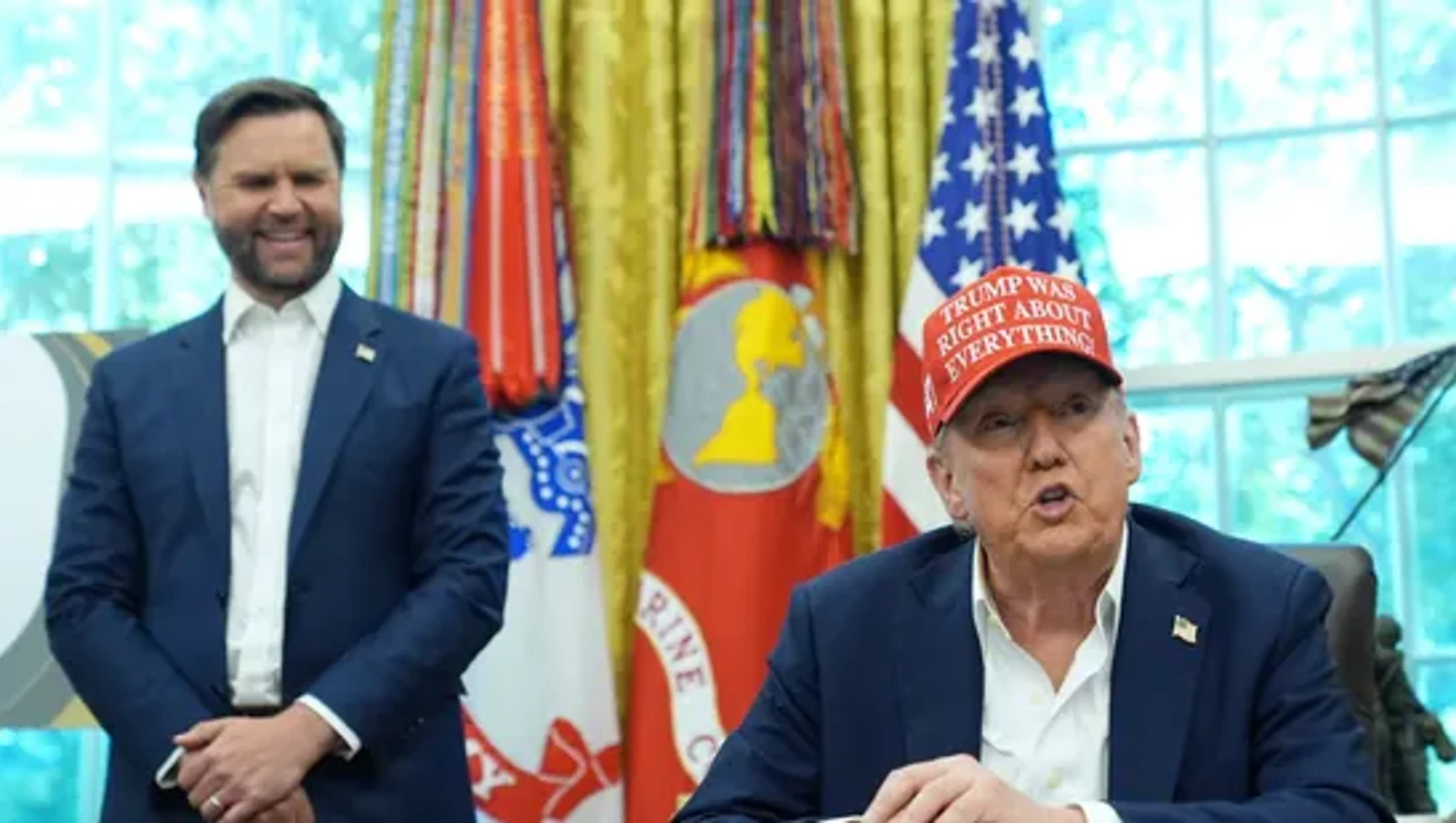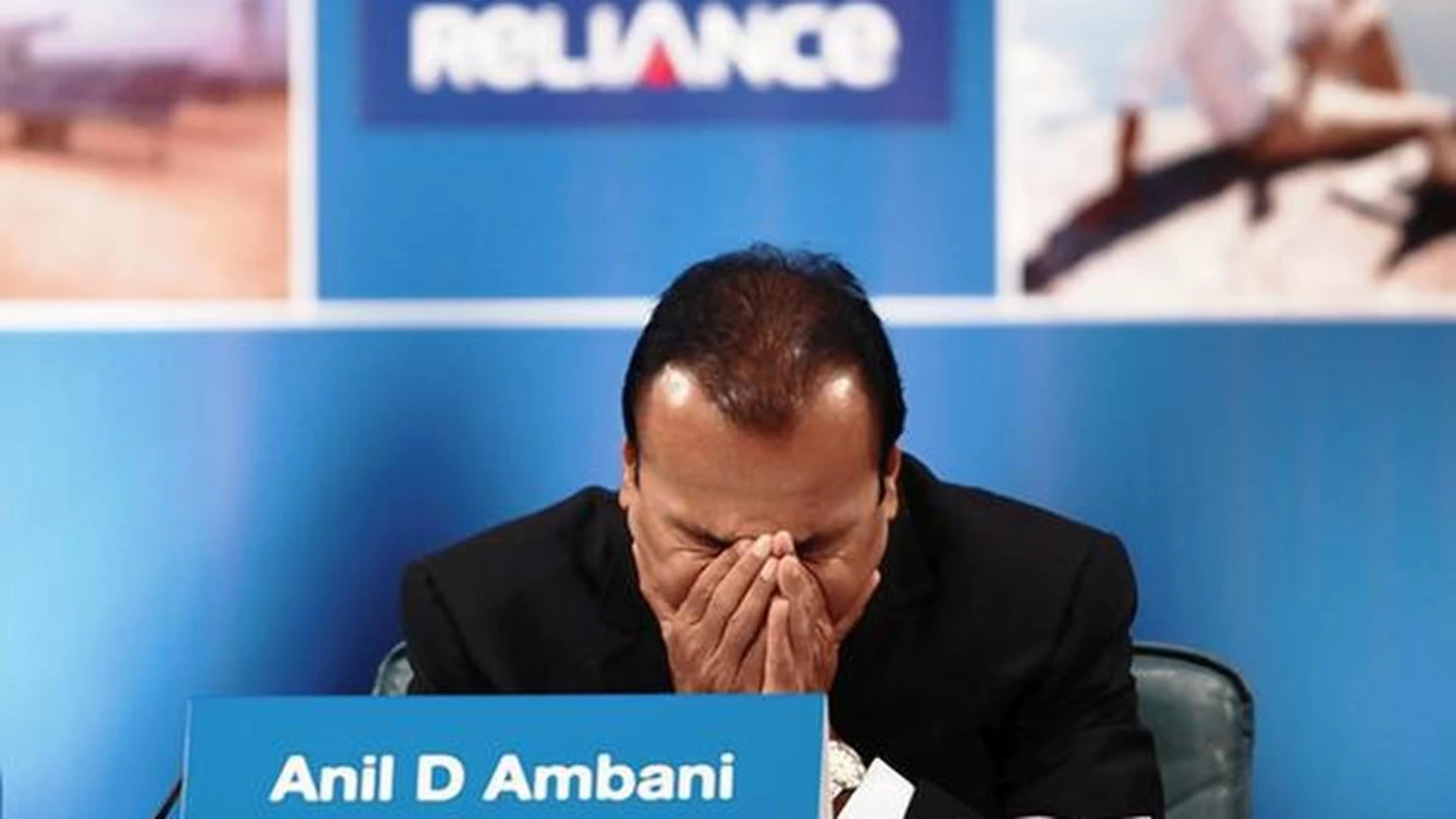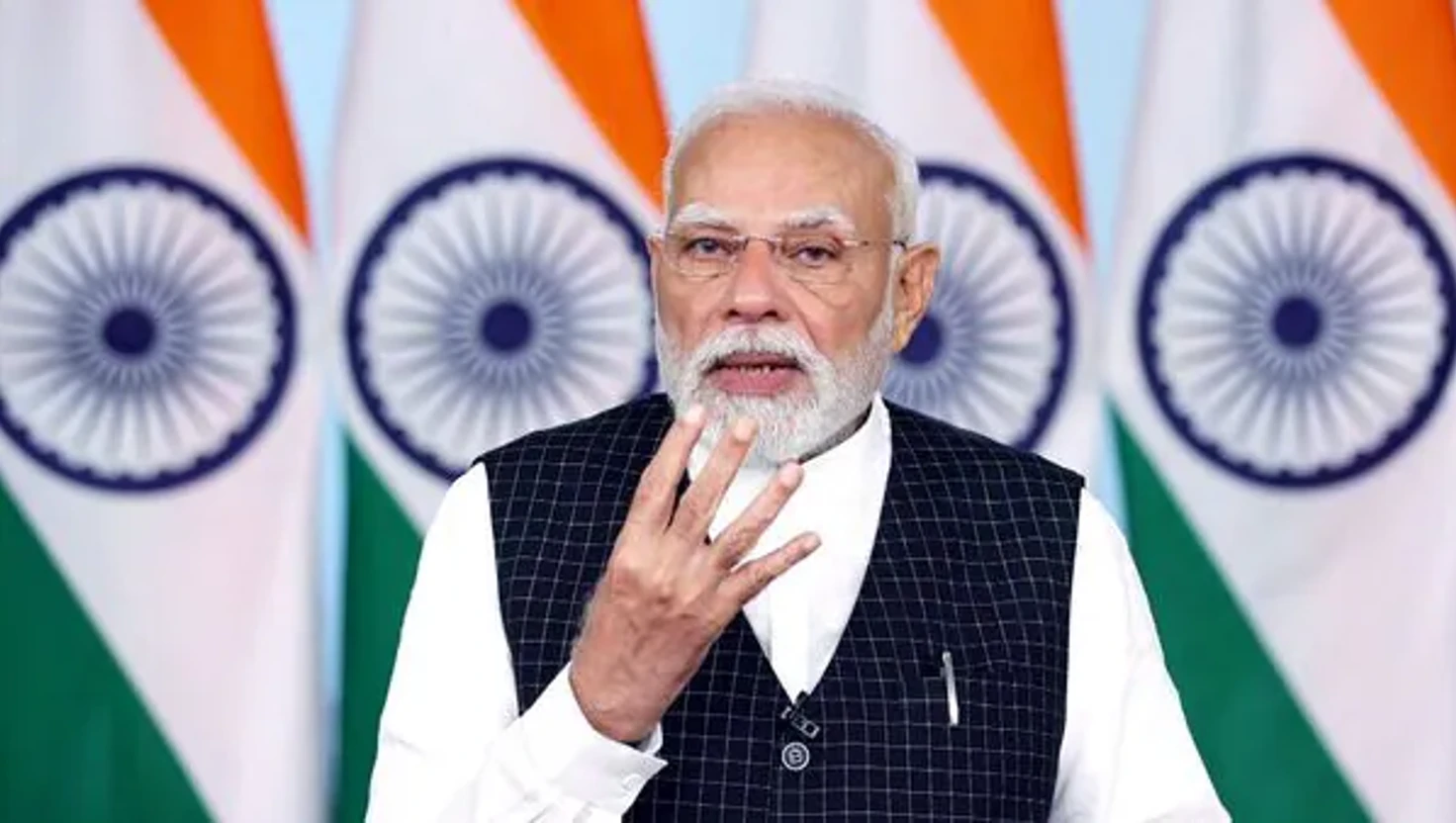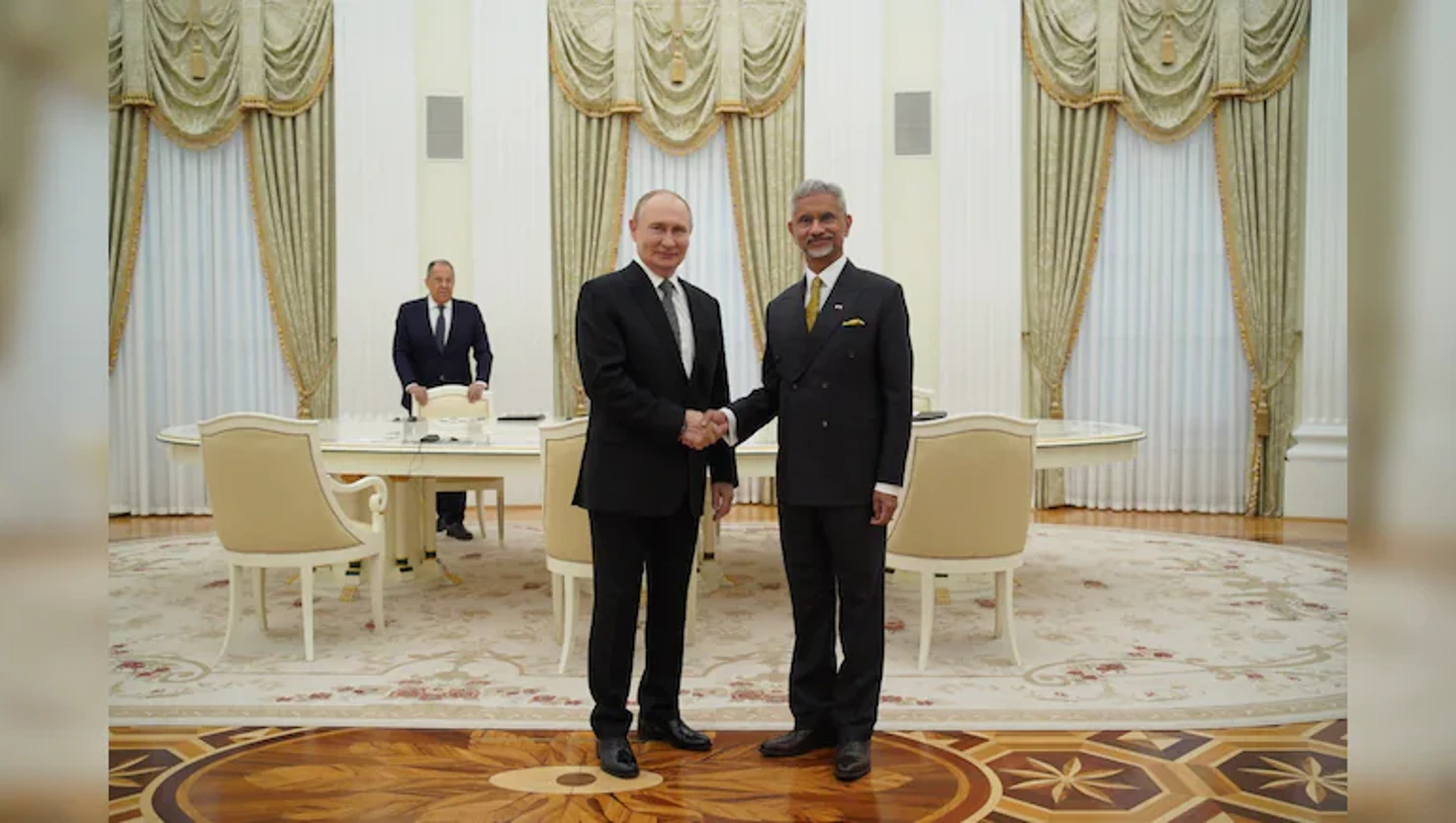India tariffs 'aggressive leverage' to force Russia on Ukraine war: Vance

India tariffs 'aggressive leverage' to force Russia on Ukraine war: Vance
US Vice President JD Vance discusses Donald Trump's tariffs on India as economic leverage against Russia amid the Ukraine war.
In a recent interview, United States Vice President JD Vance asserted that former President Donald Trump employed secondary tariffs on Indian goods as a means to exert pressure on Russia, aiming to compel the nation to cease its military aggression in Ukraine. Vance described this approach as an instance of ‘aggressive economic leverage’, suggesting it would hinder Russia’s revenue derived from oil sales.
Context of the Tariffs
The Trump administration had previously voicing its discontent over India’s decisions to purchase discounted crude oil from Russia, especially amid the ongoing international backlash against Russia's actions in Ukraine. While the United States condemned India’s oil imports, it has notably refrained from imposing similar criticisms on China, which remains one of the largest consumers of Russian oil.
Vance shared insights during an exclusive interview with NBC News' 'Meet the Press'. He suggested that these tariffs were strategically used to weaken Russia's economic position by restricting its oil income. "The President (Donald Trump) has applied aggressive economic leverage... to make it harder for the Russians to get rich from their oil economy,” he explained.
Optimism for Diplomatic Solutions
Despite facing complexities after recent discussions involving Trump and Russian President Vladimir Putin, Vance expressed an optimistic outlook regarding the potential for peace in the conflict. "We believe we’ve already seen some significant concessions from both sides, just in the last few weeks," he noted. The Vice President highlighted the importance of dialogue, indicating that there is room for negotiation even amidst hostilities.
When asked about the effectiveness of the tariffs, particularly due to the absence of new sanctions, Vance reiterated that the economic measures would continue to influence Russia's economic circumstances, possibly prompting them to engage more earnestly in negotiations.
India's Response to US Tariffs
India's government has consistently defended its energy procurement strategies, insisting that its dealings, including those with Russia, are aligned with national interests and market dynamics. Following the imposition of tariffs—recently increased to 50% on certain Indian exports—India's diplomatic relations with the United States have become strained.
External Affairs Minister S. Jaishankar reacted sharply to American criticisms, questioning the rationale behind the tariffs. He highlighted the paradox of a pro-business American administration criticizing India's decision to buy oil, stating, "If you have a problem buying oil or refined products from India, don’t buy it. Nobody forces you to buy it. But Europe buys, America buys, so you don’t like it, don’t buy it."
The Broader Impact of Sanctions
The United States' stance is that India's oil purchases indirectly support Russia’s military actions in Ukraine, a claim that New Delhi has vehemently denied. As Western nations imposed sanctions on Moscow following its invasion of Ukraine in February 2022, India capitalised on lower-priced Russian oil, adjusting its energy sourcing to comply with domestic requirements.
Vance's statements have sparked discussions about the nuances of international economic pressure tactics. When questioned about why similar tariffs had not been imposed on China, he suggested that the trade dynamics between China and Russia predated current hostilities, thus presenting a different context. "We already have 54% tariffs on the PRC (People’s Republic of China)," he stated, emphasising that the focus remains on ensuring both countries are held accountable for their roles in the conflict.
Conclusion
The discourse surrounding economic leverage as a means to resolve geopolitical conflicts signifies an evolving strategy that mixes diplomacy with trade policy. As tensions continue in Eastern Europe, the implications extend beyond mere economic transactions, potentially reshaping international relationships. The future trajectory of US-India relations, particularly in the context of energy imports from Russia, remains uncertain as both parties negotiate their positions on the global stage.
Context of the Tariffs
The Trump administration had previously voicing its discontent over India’s decisions to purchase discounted crude oil from Russia, especially amid the ongoing international backlash against Russia's actions in Ukraine. While the United States condemned India’s oil imports, it has notably refrained from imposing similar criticisms on China, which remains one of the largest consumers of Russian oil.
Vance shared insights during an exclusive interview with NBC News' 'Meet the Press'. He suggested that these tariffs were strategically used to weaken Russia's economic position by restricting its oil income. "The President (Donald Trump) has applied aggressive economic leverage... to make it harder for the Russians to get rich from their oil economy,” he explained.
Optimism for Diplomatic Solutions
Despite facing complexities after recent discussions involving Trump and Russian President Vladimir Putin, Vance expressed an optimistic outlook regarding the potential for peace in the conflict. "We believe we’ve already seen some significant concessions from both sides, just in the last few weeks," he noted. The Vice President highlighted the importance of dialogue, indicating that there is room for negotiation even amidst hostilities.
When asked about the effectiveness of the tariffs, particularly due to the absence of new sanctions, Vance reiterated that the economic measures would continue to influence Russia's economic circumstances, possibly prompting them to engage more earnestly in negotiations.
India's Response to US Tariffs
India's government has consistently defended its energy procurement strategies, insisting that its dealings, including those with Russia, are aligned with national interests and market dynamics. Following the imposition of tariffs—recently increased to 50% on certain Indian exports—India's diplomatic relations with the United States have become strained.
External Affairs Minister S. Jaishankar reacted sharply to American criticisms, questioning the rationale behind the tariffs. He highlighted the paradox of a pro-business American administration criticizing India's decision to buy oil, stating, "If you have a problem buying oil or refined products from India, don’t buy it. Nobody forces you to buy it. But Europe buys, America buys, so you don’t like it, don’t buy it."
The Broader Impact of Sanctions
The United States' stance is that India's oil purchases indirectly support Russia’s military actions in Ukraine, a claim that New Delhi has vehemently denied. As Western nations imposed sanctions on Moscow following its invasion of Ukraine in February 2022, India capitalised on lower-priced Russian oil, adjusting its energy sourcing to comply with domestic requirements.
Vance's statements have sparked discussions about the nuances of international economic pressure tactics. When questioned about why similar tariffs had not been imposed on China, he suggested that the trade dynamics between China and Russia predated current hostilities, thus presenting a different context. "We already have 54% tariffs on the PRC (People’s Republic of China)," he stated, emphasising that the focus remains on ensuring both countries are held accountable for their roles in the conflict.
Conclusion
The discourse surrounding economic leverage as a means to resolve geopolitical conflicts signifies an evolving strategy that mixes diplomacy with trade policy. As tensions continue in Eastern Europe, the implications extend beyond mere economic transactions, potentially reshaping international relationships. The future trajectory of US-India relations, particularly in the context of energy imports from Russia, remains uncertain as both parties negotiate their positions on the global stage.

CBI Conducts Raids Linked to Anil Ambani Over ₹2,929 Crore Fraud
The Central Bureau of Investigation launches operations linked to Anil Ambani over significant bank fraud involving Reliance Communications in Mumbai.
| 2025-08-24

Karan Johar Critiques Podcast Culture, Calls for Respect in Film Industry
Filmmaker Karan Johar condemns disrespectful podcasters and astrologers, urging an end to harmful narratives in the film community.
| 2025-08-24

Android Users Criticise Unexpected Phone App Redesign
Recent updates to the Android Phone app interface have prompted a wave of criticism from users, citing oversized features and unwanted changes.
| 2025-08-24

Made-in-India semiconductor chip coming by 2025-end, says Modi
Prime Minister Narendra Modi announces first Made-in-India semiconductor chip by end of 2025, alongside rapid developments in 6G technology.
| 2025-08-24

Indian Foreign Minister Jaishankar meets Russian President Putin
Indian External Affairs Minister S. Jaishankar reinforces ties with Russia, responding to US tariffs and trade concerns surrounding energy imports.
| 2025-08-22




